What Happens If Someone Makes a False Insurance Claim?
Insurance benefits help people recover from an accident or injury. The system works when claims are based on facts, but when a person includes false information or exaggerates part of a story, this dishonesty has far reaching consequences. Submitting false information on a claim, even if it seems minor, poses real risks.
According to recent studies, insurance fraud investigations rose 76% in 2024, and nearly two-thirds of that involved auto insurance fraud. These numbers are pushing insurance providers to act faster when they suspect fraud, and the penalties for making a false insurance claim can be serious, even when the original claim had some truth to it.
At McNally Gervan LLP, we help injured people protect their rights through every step of the claims process. We help you avoid costly mistakes, especially when you’re dealing with insurers who are trained to suspect fraud, and we can step and help in if your claim was denied or delayed. If you’re wondering what happens if someone makes a false insurance claim, here’s what’s at stake.
What You Need to Know About Insurance Fraud & False Claims
Criminal Charges: The Risk of a Criminal Record
In Canada, submitting false information to an insurer may be charged as fraud under the Criminal Code. If convicted of insurance fraud, the penalties can include fines and a criminal record, or even prison time.
For fraud over $5,000, a person can face up to fourteen years in jail. Even if the value is lower, a summary conviction can still result in a permanent record. Insurance scams, like staged accidents or fake invoices, often lead to both criminal and civil actions.
Civil Liability: When Insurers Fight Back
If an insurance company pays a claim and later finds out the details were false, they can sue the person who submitted it. In many cases, the insurer asks the court to order repayment of the full amount, plus legal fees and any investigation costs.
Civil claims can also include damages meant to punish the fraudulent behaviour, especially if the fraud was part of a pattern. These lawsuits are often brought to court even when there’s no criminal charge.
Denial of Claim: Losing Access to Benefits
One of the most immediate consequences of a false insurance claim is a full denial of claims and benefits. It doesn’t matter if the claim was partly legitimate, insurers can reject the entire insurance claim, and that includes accident benefits you might have qualified for.
If you’re relying on your own coverage to cover medical expenses or lost income, that support disappears the moment a claim is considered as potential fraud. This risk applies across the board, including in disability claims.
Policy Cancellation: Long-Term Consequences
If your insurer determines that you’ve submitted fraudulent claims, they can cancel your policy, which leaves you without protection if another accident happens. A policy cancellation based on suspected or confirmed fraud will also be noted in shared insurance databases. It can make it difficult to get insured again.
Increased Premiums: Higher Costs Down the Road
If your policy isn’t cancelled, your insurance provider may still raise your premiums. Once you’ve been flagged in an insurance fraud investigation, your profile is marked as high-risk, which means you could be required to pay increased premiums, or accept limits on future claims and benefit plans. These costs add up quickly and may affect other, unrelated plans.
Difficulty Getting Future Coverage: Flagged as High Risk
Insurers are more cautious about offering coverage to people who have a history of potentially fraudulent activities. You might be required to submit extra documentation, face limits on your policy, or pay large upfront costs.
This makes it especially difficult if you later experience a legitimate accident and need to file a claim. Even short-term disability claims may be delayed or denied based on your past conduct.
Support for Your Insurance Claims
At McNally Gervan LLP, we help clients across the Ottawa area navigate complex insurance claims. We advocate for injured people, not insurers, and we understand how to challenge denials, delays, and unfair accusations.
If you’re unsure how to approach your disability claim or think an insurer is treating you unfairly, we’re here to help. We offer experience in all areas of insurance, including auto claims, long-term disability claims, short-term disability claims and disputes involving accident benefits. Your recovery should come first. We’ll handle the rest.
Contact us to schedule a free consultation.
Common Questions About False Insurance Claims in Canada
What are the consequences of misrepresentation in insurance?
Misrepresentation can lead to a denied claim, policy cancellation, or even being asked to meet before a legal counsel. If the insurer determines the misrepresentation was intentional, you may also face charges or civil liability. Insurers have the right to rescind the contract and deny certain benefits in the event of fraud or misrepresentation.
What happens if you make a false claim?
If you make a false insurance claim, your provider may launch an insurance fraud investigation. You could face criminal charges, lose your coverage, be forced to repay any money you received, and damage your ability to get future insurance.
Even minor incorrect information can be seen as committing fraud.
What is the maximum fine for submitting a false claim to the insurer?
Under the Criminal Code of Canada, fraud over $5,000 carries a maximum sentence of fourteen years in prison. Fines can vary depending on the case and whether the fraud was pursued as an indictable or summary offence. Restitution, legal fees, and damages may also be ordered in civil court.






Follow Us